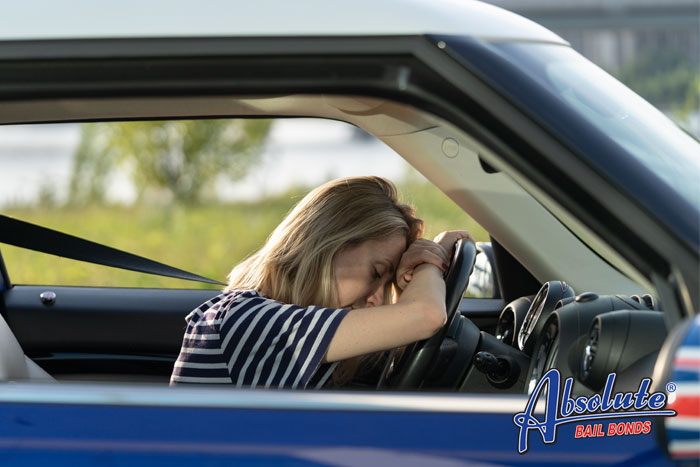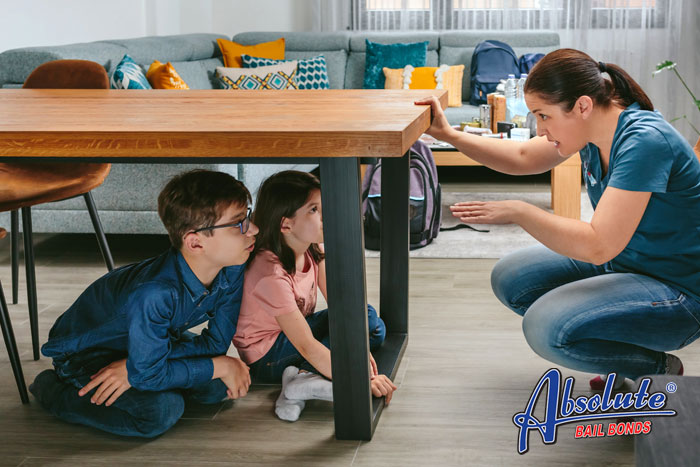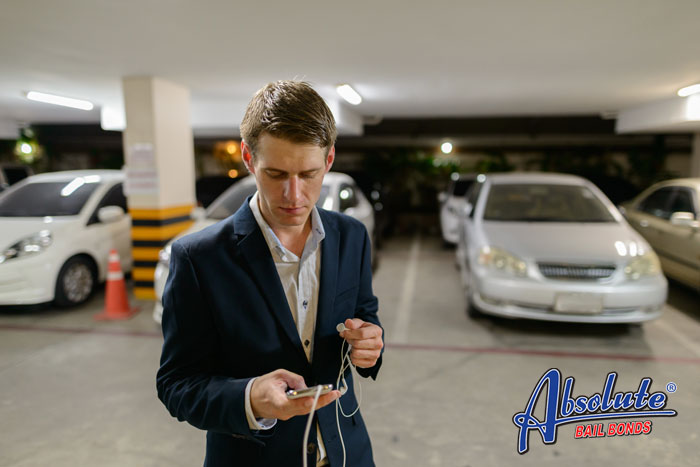
Sleep-deprived Driving
Most of us have heard so much about the dangers of drinking and driving that we would never dream of sliding behind the wheel after consuming alcohol. Yet, we seldom think twice about going for a drive while we’re tired.
The truth is that while there aren’t any actual laws about sleep-deprived driving, the action is very dangerous. The United States Department of Transportation reports that in drowsy driving incidents resulted in nearly 700 deaths during 2019. It’s impossible to know exactly how many actual accidents were the result of drowsy driving.
We know that alcohol dulls our senses and makes it difficult to react appropriately when things start to unwind. The same is true when we’re tired. All it takes is a single driver hitting the brakes or turning in front of you for an accident to happen. While fully alert, you might have been able to avoid a collision, but when you’re sleep-deprived, you react too slowly, or worse, fail to even realize that you need to react at all.
The other problem with sleep-deprived driving is that sleep deprivation, like alcohol, can cause you to make poor decisions. This poor decision can lead to reckless driving behavior that makes you a danger to yourself and everyone else.
The biggest danger of drowsy driving is that you’ll fall asleep. All it takes is closing your eyes for a second and dropping off. At this point, your car is operating all by itself. You can drive off the road, collide with another car, change lanes so you’re heading the wrong way. Falling asleep at the wheel has resulted in numerous fatal car accidents.
Don’t assume that you can use caffeine to stay awake while you’re behind the wheel. The only way to truly prevent being the cause of a drowsy driving incident is to make sure you are fully awake and alert each time you hit the road. If you’re tired, postpone your trip and take a nap. Being late is far better than the alternative.
If you feel yourself getting tired while you’re in the middle of a commute, don’t try pushing through the fatigue. Instead, find a safe place to pull off the road, such as a gas station or grocery store parking lot. Lock your doors and try to take a nap.
If your drowsy driving leads to an accident, you could be ticketed for reckless driving plus other moving violations. If someone is hurt or killed during the incident, you could find yourself facing vehicular manslaughter charges as well as a civil lawsuit.

Failure to Pay Legal Child Support Obligations in California
Child support is always a touchy issue. There are a variety of reasons people use for failing to pay legal child support obligations in California. These reasons include:
- That the amount is more than they can afford and they don’t have enough money left to live on
- They don’t think their ex (or kids) are entitled to the money
- They spent the money on other things
- They paid the money but it has gotten lost in the system
The first thing you have to understand is that once the court has ordered a specific amount of child support to be paid, that is it. You are expected to make the complete payments and the payments should be made on time. Failing to do so is breaking the law.
If you can’t afford to pay the child support or if situations have changed and you no longer feel that the amount you’re paying is fair, you need to contact the court immediately and arrange to have your case reviewed. Until the review happens and the child support order is formally changed, you still have to make the current payments. Failing to keep up with the payments, even when the matter is being discussed, will result in legal action.
Don’t assume that just because you spent the money on something else and no longer have access to the funds, that you won’t have to worry about any legal actions. Not having the money available is not considered a valid reason to fall behind on your child support payments.
If you no longer have the money because of an employment change, medical emergency, or another kind of emergency, it’s in your best interest to alert the court system immediately so they can evaluate your case. Taking a proactive stance is the best way to avoid legal trouble.
The simple truth is that sometimes the system doesn’t work and child support payments become lost. This is why it’s so important to document everything so that you can prove the missing payments weren’t your fault, but rather a clerical error. Don’t assume that because the child support payments you made were lost that you can stop making payments. You still have to submit your child support payment on time until the missing payments are found and reimbursements are made.
The legal consequences of failing to pay child support are quite severe. The state could decide to suspend not only your driver’s license but also any professional business licenses you might rely on to make a living. In severe cases, the state could decide that your failure to pay the court-ordered child support is a contempt of court, which could result in serving jail time.
When all is said and done, it’s in your best interest to make every single child support payment on time and in full. If you’re unable to do so, notify the courts immediately.

Be Prepared to Ask Your Bail Bonds Agent Some Questions
No one plans to be arrested, which means no one sets aside money to use as bail. Since no one keeps a savings account specifically for bail money, when you are arrested, you’ll likely need the services of Absolute Bail Bonds.
We don’t believe that the consultation should be a one-way conversation during which we ask all the questions and you provide answers. We want you to be comfortable with us which is why we encourage you to ask plenty of questions.
How Long Before You’re Released From Jail?
We think you should know how long it will take us to submit the bail bond and get you released from jail. Not only should you know that we’re going to work quickly, but you’ll also need to arrange for a ride home and maybe let your employers know that you’re going to be late getting to work.
The answer will depend on a few variables. We can assure you that as soon as you sign our bail bonds contract, we’ll quickly start the process of getting you released. We will quickly arrive at the jail, bail bond in hand, and turn into the necessary paperwork. After that, the amount of time it takes depends on the booking officer.
How Much Money do you Owe?
As soon as we hear the amount your bail is set at, we can tell you the exact amount of money we require from you. In the meantime, we will say that is ten percent of the set bail amount is our normal fee. We do offer military personnel a 20% discount.
Do you Require Collateral?
This is an excellent question that we feel everyone should ask. The answer depends on your history, the charges filed against you, your community ties, and how high your bail was set. In most cases, we don’t require collateral from working signers, though there is the occasional exception.
If you or one of your loved ones has been arrested, contacting Absolute Bail Bonds in Lancaster is the fastest and easiest way to get them released.
Feel free to call 1-800-793-2245 or click Chat With Us now for an obligation-free consultation.

The Unlawful Taking of Pictures and Video Recording
Thanks to built-in cameras on smartphones, most of us have a camera at our disposal 24/7. We’re able to record everything. We use the phone camera for selfies, points of interest, and to record the actions of others. We’ve grown so accustomed to taking photos and videos of everything that we rarely stop and think about the fact that there are certain times, places, and situations when taking pictures and video recordings is actually against the law.
Learning that there are cases where a person has broken the law with videos or photos they’ve snapped can make you have second thoughts about using your camera. The good news is that the odds are pretty good that you’re not going to record anything that will break the law. Both federal and state laws are written in a manner that allows you to legally take a photo of anything that’s plainly visible. You’ll be pleased to learn that this includes federal buildings and even police officers who are working.
You’re also legally allowed to take photos and videos of things that can be seen from public property. For example, as long as you can do so from the road, you’re allowed to photograph an interesting-looking barn.
If you’re on private property, the property owners get to make rules about what you can and can’t take photos/videos of. For example, if snapping a few shots of the barn requires you to walk across a private hayfield and jumping a fence, the property owners could insist that you destroy the images and also file trespassing charges against you. The same is true if you walk up to someone’s house and start snapping pictures or videos through their windows. You’re not legally allowed to take photos or videos of a person (or their belongings) if the property owner had a reasonable expectation of privacy.
If you’re caught taking photos or videos in an area where the property owner had a reasonable expectation of privacy, they can file invasion of privacy charges as well as trespassing charges against you. If you’re convicted of invasion of privacy, the judge could sentence you to up to six months in a county jail and order you to pay a fine of $1,000. If this isn’t the first time you’ve been convicted of invasion of privacy, the sentence could double.
The best way to avoid getting into trouble while you shooting pictures or videos is to make sure you’re feet are always firmly planted on public property.

Probation and Parole. What’s the Difference?
If you’re confused about the difference between probation and parole, you’re not alone. Most people don’t really know what the difference is between the two until they get into trouble with the law.
While you’re on probation, you’re still technically in police custody, but you have a great deal more freedom than you’d enjoy if you were in jail. There will be some rules attached to your probation, breaking any of these rules will result in you losing your probation status and being locked in a cell. One of the big things you’ll have to do is routinely meet with your probation officer who will insist that you prove you’re following the rules.
Many people are put on probation without ever seeing the inside of a jail cell.
Parole is both similar to probation and different. The best way to think about parole is that it is kind of like is a kind of parental supervision. It’s sort of like that stage where sorta living on your own but still relying on your parents. When you’re granted parole, the parole board is saying that while you no longer have to be in jail, you’re also not ready for total independence.
Legally speaking, parole is a conditional release from prison. It is a way of getting out of prison even though you still have some time left to serve. Other than the fact that you have spent time in prison, parole and probation are very similar. Though the rules of parole are sometimes stricter and you sometimes have to work harder to prove that you should be granted parole. One of the big issues connected to parole is admitting your guilt and showing that you understand why your actions were wrong.
It isn’t unusual for restrictions and requirements to be attached to both parole and probation, though those restrictions vary from one case to the next. In most cases, people who are serving both parole and probation will have their travel restricted, will have to submit to drug (and sometimes alcohol) testing, are sometimes required to attend counseling sessions, are sometimes required to be at home during specific times of the day/night, and will sometimes be electronically monitored.
If you are serving either probation or parole, it’s important to remember that you haven’t been given a get out of jail free card. A single misstep, even a little one, could result in your being incarcerated.

Earthquake Safety Tips
There are many great reasons to live in California. There’s also one huge drawback. In exchange for easy access to beaches and year-round wonderful weather, you always have to be prepared for an earthquake.
The good news is that most of the earthquakes we experiences are really small, little more than slight tremors that give people something to chat about. They seldom do more than cause a few things to fall off shelves. However, every once in a while, there is a massive earthquake.
Since no one really knows when a big earthquake will arrive or how bad the earthquake will be, it’s important that everyone is up to date on current earthquake safety tips.
Create a Safety Plan
Everyone who lives in your home should have a plan about how they will handle things if they’re home during a massive earthquake. Not only does this mean knowing the safest point in your house, but also having a system in place that allows you to connect with loved ones to let them know that you’re safe. Keep some survival supplies, including non-perishables, blankets, and bottled water in the earthquake designation zones.
When You’re Indoors
If you’re inside when a massive earthquake hits get somewhere protected. Ideally, this would be a closet, which has a frame that provides additional protection. If you’re not near a closet, get under a table or desk. The idea is to get some protection from falling debris. Make sure you’re well away from bookcases, windows, and anything heavy that could shift or fall.
Drop low to the ground, preferably on your knees, and stay still until the shaking stops. You should stay indoors for several minutes after the shaking stops. The only exception to staying in place is if you smell gas or smoke. If you smell gas or smoke, get out as quickly as possible while yelling for help.
When You’re Outside
If you’re outside when an earthquake starts, you want to get low to the ground while also moving away from trees, buildings, and power lines. If you’re in a vehicle, stop the car somewhere that there’s little damage of it being hit by a powerline tree, or sliding into a ditch.
Once the earthquake has passed, you need to first take care of yourself and make sure you’re not injured. Once you’re confident you’re in good shape, your next course of action is checking in with your loved ones and helping anyone who was injured during the earthquake.

Driving Drunk on Halloween
We have a tendency of thinking about Halloween as a holiday that is full of good-natured fun. It’s a holiday that allows us to wear crazy costumes, abandon our diets, and really cut loose. The only real risk we usually associate with the holiday is the need to drive carefully during the time frame that trick-or-treaters roam the streets.
What many of us don’t know is that Halloween is a holiday when many drivers overindulge and are legally drunk when they slide behind the wheel. Most of these drunk drivers are leaving Halloween parties.
College students in particular are prone to over drinking on Halloween. One research project revealed that the average college student usually drinks about 6.3 alcoholic beverages at Halloween parties. That’s about 1.4 more drinks than they would normally consume.
And it isn’t just college kids who drink too much at Halloween functions. According to the American Addiction Centers, Halloween is the fourth booziest holiday of the year. Americans consume less alcohol on Halloween than they do on the Fourth of July but more than they drink during Cinco de Mayo.
If you’re going to a Halloween party and plan on drinking alcohol, you still need to be smart. Assume that you’ll drink too much to safely drive home and create a plan. This plan could involve a designated driver, getting an Uber home, or simply staying at the host’s home until you’ve sobered up.
Hawaii patrol officers know how dangerous the streets are on Halloween night. They will be out, and they will be keeping an eagle eye open for any tell-tale signs that you’re driving drunk. It’s even possible that you’ll encounter a sobriety checkpoint on your way home.
If you are arrested and convicted of drunk driving on Halloween, the consequences will have an immediate impact on your life.
If this is your first DUI conviction, you could be sentenced to as much as six months in jail, fined up to $1,000, have your driver’s license suspended for six months, and have a vehicle ignition lock installed on your vehicle for up to a year while your driving privileges are restricted.
The third time you’re convicted of drunk driving in California, you could be sentenced to 120 days through 1 year in jail, pay a fine of $1,800, lose your driver’s license for up to 3 years, plus have an ignition lock installed on your vehicle for as long as two years.
If your drunk driving results in property damage, someone getting hurt, or the death of another person, you will face even more serious charges that could include vehicular manslaughter.
All things considered, finding a different way to get home after you’ve been drinking at a Halloween party is a really good idea.

The Truth About Parking Lot Safety
We take parking lots for granted. We treat them like a casual place to leave our car while we run into a nearby building.
We’re usually so focused on either getting to the store/office/school/government building or getting into our vehicle to go home, that we seldom stop and think about how dangerous parking lots really are.
The truth is that every time you use a parking lot, you put your life at risk.
A surprising number of people are injured in parking lot falls every single year. In most cases the reason for the fall is innocent, you tripped on a stick, a pothole, or even your own feet. The problem with parking lot falls is that not only is there the danger that you’ll hit your head on the asphalt when you land and possibly sustain a traumatic brain injury, but while you’re down, there’s a chance a driver won’t notice you on the ground and will run over you.
The best way to avoid a dangerous fall is walking with care, staying well out of the routes the vehicles take through the parking lot, and not walking behind/in front of any running vehicle. If you do fall, yell at the top of your lungs so drivers will know you’re in distress and drive defensively and cautiously.
Drugs and other criminal activity are a huge problem in parking lots. There’s something about the layout of parking lots and the sheltered nature and accessibility of the parking garages attract a huge criminal element. This isn’t something you want to get mixed up in. Avoid groups of people who are simply standing around or who appear to be conducting business. Avoid making eye contact with these people. Once you’re in a safe place, contact the police.
Parking lot abductions are a serious problem, particularly for women and children. So many people are distracted by either plans or their cell phones that they are easy to grab and shove into a car. The best way to avoid being a parking lot abduction victim is to keep your head up, your ears free of any headphones so that you can hear an approaching car or footsteps, don’t walk in shadows, and enter your car as quickly as possible.
If you suspect you’re being stalked through the parking lot, abandon your plans to leave and go to the building and alert an employee to the situation.
The next time you’re in a parking lot, don’t take your safety for granted. Be aware of the potential danger and have a plan to stay safe and healthy.

Are you Being Stalked?
Stalking is a major problem in the United States. Every single year there are about 6 million people who find themselves in a position of having to report stalking-related incidents.
While most stalking victims are women, that’s not always the case. Each year men, who often assume that they don’t have to worry about stalkers, find themselves being followed. Some female stalkers have even murdered their victims.
The sooner you recognize the early warning signs of a stalker, the safer you will ultimately be.
When stalking victims look back on their history with their stalker, they usually notice that things started getting weird when they continually ran into the person in various locations. In the beginning, things usually don’t seem strange because it’s someone they know and because sometimes people do share the same space at the same time.
However, if the “causally running into one another” becomes a daily occurrence or the encounters happen in increasingly strange places, it’s time to start considering that a stalking situation could be developing.
Unexpected Gifts
The only thing better than getting a present is getting a present when it’s totally unexpected. The problem with unexpected presents is that they can also be a sign of unwanted attention. If someone is continually giving you things, even seemingly innocent things such as candy bars, it could be that they are developing an unhealthy obsession.
Ignoring Boundaries
Once you started getting unwanted gifts you likely started putting up some boundaries. If a person is ignoring these boundaries and continues to lavish unwanted gifts on you and is constantly entering into your personal space, it’s a sign that they have developed a potentially unhealthy attachment to you.
Property Damage
Property damage is often a tell-tale sign that a person has started to develop a stalking tendency. This is especially true if you’ve done something such as gone out with someone else or rebuffed your stalker’s advances. The property damage is a sign that it’s time to get the police involved.
It’s not uncommon for stalking behavior to escalate until it is ruining both your’s and the stalker’s lives. Ignoring the behavior doesn’t do anyone any favors. As the stalking behavior escalates, it’s important to involve the authorities. Not only will they take action to protect you, reaching this point could be what your stalker needs to realize that they’re engaging in dangerous behavior and that they need to seek professional help.


